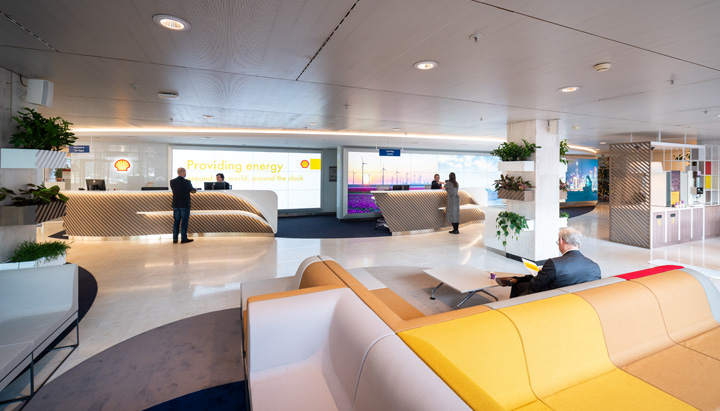Our tax profile in the Netherlands

Photo left: Shell global headquarters, The Hague, the Netherlands.
Shell has been active in the Netherlands for more than a century and our global headquarters are in The Hague. Most of Shell's activities are represented in the Netherlands.
Our activities in the Netherlands include around 500 retail sites, the Amsterdam-based subsidiary NewMotion, which owns one of Europe’s largest electric vehicle charging networks, the Moerdijk chemical plant, and the Pernis refinery.
Through our 50% interest in Nederlandse Aardolie Maatschappij (NAM), we produce oil and gas onshore and offshore. We also invest around $1 million every day in research into energy efficiency and innovation at our Shell Technology Centre Amsterdam.
Together with partners, we develop solar power and offshore wind farms in the Netherlands to create electricity. Shell intends to use electricity from wind farms to create hydrogen that will be used to decarbonise industry. Our global New Energies business, which focuses on power and new fuels for transport, is led from The Hague.
Our businesses in the Netherlands employ almost 10,000 people on a permanent basis (including NAM). In 2019, we generated nearly €3 billion in turnover for more than 2,500 companies in the Netherlands through the goods and services we bought from them.
We paid around €305 million in corporate income tax and royalties, most of which was paid through our 50% interest in NAM. We also collected and paid around €4.5 billion in tax from our customers, employees and shareholders.
The tax regime for international businesses has been the subject of public and political debate in the Netherlands.
In May 2019, Shell participated in a discussion in the Dutch parliament to talk about the corporate income tax paid by large multinationals with headquarters in the Netherlands. Some people believe that multinationals do not pay as much corporate income tax in the Netherlands as they should.
We explained our position in this discussion and emphasised that the tax system in the Netherlands aligns with its open economy and has been successful in attracting investment and creating jobs.
Shell committed to tax transparency a number of years ago. Our first Tax Contribution Report, published in December 2019, shares more on our approach to tax and the corporate income taxes we pay in the many countries in which we operate. In this report, we continue to build on this commitment.
As we aim to take sustainable tax positions in support of our business investments, we regularly engage with the tax authorities on our tax affairs. We do this under a co-operative compliance arrangement which is based on three key values: mutual trust, understanding and transparency.
This means we proactively inform the tax authorities of all relevant business developments. Where tax treatment is unclear, we discuss and agree the tax implications openly. We also provide information on the process and controls that support our tax payments and returns.
 Message from the Chief Financial Officer
Message from the Chief Financial Officer
 Shell’s approach to taxes
Shell’s approach to taxes
 Special topics
Special topics
 Our tax data
Our tax data
